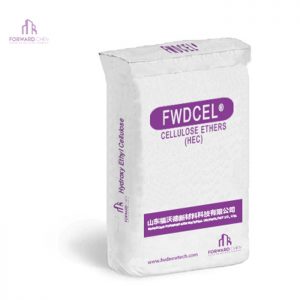Hydroxyethyl cellulose (HEC) is a commonly used water-soluble polymer compound with good thickening and gelling properties. However, sometimes we find that the viscosity of hydroxyethyl cellulose decreases during use, which brings us some troubles. Let's analyze the reasons for the decrease in the viscosity of hydroxyethyl cellulose.
The decrease in the viscosity of hydroxyethyl cellulose may be related to the change in its molecular weight. The molecular weight of hydroxyethyl cellulose determines its fluidity and thickening properties in the solution. If the molecular weight of hydroxyethyl cellulose decreases, the interaction between its molecular chains will weaken, resulting in a decrease in viscosity. This situation may be caused by the decomposition, degradation or incomplete polymerization of hydroxyethyl cellulose.
The decrease in the viscosity of hydroxyethyl cellulose may also be related to the pH value and temperature of its solution. The solubility and gelling properties of hydroxyethyl cellulose are greatly affected by pH and temperature. In an acidic environment, hydroxyethyl cellulose is prone to acid hydrolysis, resulting in a decrease in molecular weight, thereby reducing viscosity. Under high temperature conditions, the molecules of hydroxyethyl cellulose are also prone to thermal decomposition, resulting in a decrease in viscosity.
The decrease in the viscosity of hydroxyethyl cellulose may also be related to its interaction with other substances. Hydroxyethyl cellulose can interact with other polymer compounds or solvents in solution to form complexes or aggregates. If the substance interacting with hydroxyethyl cellulose changes, or the interaction strength with hydroxyethyl cellulose weakens, the viscosity of hydroxyethyl cellulose will decrease.
The decrease in the viscosity of hydroxyethyl cellulose may also be related to the concentration of its solution. The higher the concentration of the hydroxyethyl cellulose solution, the stronger the interaction between its molecules, which increases the viscosity. If the concentration of the hydroxyethyl cellulose solution decreases, the interaction between its molecular chains will weaken, resulting in a decrease in viscosity.
The reasons for the decrease in the viscosity of hydroxyethyl cellulose may include changes in molecular weight, changes in the pH value and temperature of the solution, interactions with other substances, and changes in the concentration of the solution. When using hydroxyethyl cellulose, we need to pay attention to these factors that may cause a decrease in viscosity and reasonably regulate the conditions to ensure its good thickening and gelling properties.



